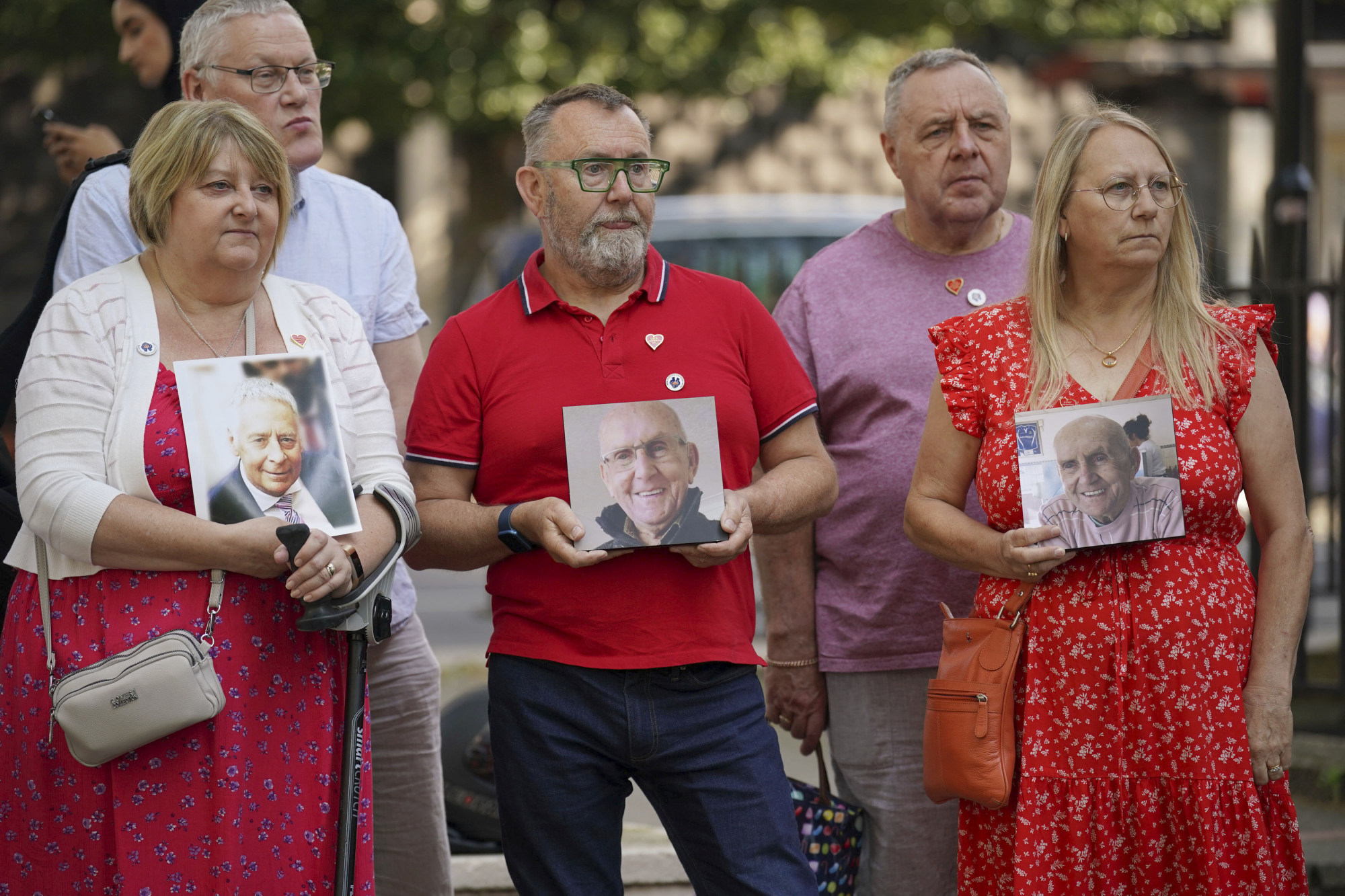
Covid-19 inquiry told Brexit hit UK’s pandemic preparations; victims’ relatives lash out
- The first phase of the inquiry is due to focus on the UK’s resilience and preparedness in the face of the global health emergency
- Relatives of Covid-19 victims have also taken aim at the investigation saying it will be a “farce” if bereaved families are not able to testify
The UK government’s focus on Brexit seriously hampered pandemic planning, an inquiry examining the country’s handing of the Covid-19 health emergency was told on Tuesday.
Hugo Keith, lead lawyer to the Covid-19 inquiry which is holding its first public session, said the country’s departure from the European Union had “required an enormous amount of planning and preparation”.
“It is clear that such planning, from 2018 onwards, crowded out and prevented some or perhaps a majority of the improvements that central government itself understood were required to be made to resilience planning and preparedness.”
Keith said the coronavirus pandemic had brought “death and illness on an unprecedented scale” in modern Britain. He said that Covid-19 has been recorded as a cause of death for 226,977 people in the UK
“The key issue is whether that impact was inevitable,” Keith said. “Were those terrible consequences inexorable, or were they avoidable or capable of mitigation?”
Relatives of Covid-19 victims have also taken aim at the investigation saying it will be a “farce” if bereaved families are not able to testify.
A group of people who lost relatives to Covid-19 held pictures of their loved one outside the inquiry venue, an anonymous London office building. The first day of public hearings began with a 17-minute video in which people described the devastating impact of the pandemic on them and their loved ones.
Members of the Covid-19 Bereaved Families for Justice campaign group lined up outside the inquiry in central London holding pictures of their loved ones.
Launching proceedings, retired judge Heather Hallett pledged that those who suffered during the pandemic would “always be at the heart of the inquiry”.
She paid tribute to the relatives’ “dignified vigil”, adding that she hoped they would “understand when they see the results of the work we are doing that I am listening to them”.
“Their loss will be recognised,” added Hallett, who previously oversaw the coroner’s inquests into the 52 people killed in the July 7, 2005 London bombings.
Britain’s pandemic death toll is one of the highest in Europe, and the decisions of then Prime Minister Boris Johnson’s government have been endlessly debated. Johnson agreed in late 2021 to hold an inquiry after pressure from bereaved families.

Senior scientists and officials including Johnson are expected to appear as witnesses. Hallett, who has the power to summon evidence and question witnesses under oath, is currently in a legal battle with the government over her request to see an unedited trove of notebooks, diaries and WhatsApp messages between Johnson and other officials.
Hallett has called for ex-prime minister Boris Johnson’s unredacted WhatsApp messages and notebooks to be handed over, prompting a legal challenge from the government of his successor Rishi Sunak.
Sunak, who was finance minister during the pandemic, has denied trying to block the material, while Johnson is said to be in favour of it being shared.
The first witnesses to give evidence in person to the inquiry will be leading epidemiologists Jimmy Whitworth and Charlotte Hammer on Wednesday.
Hallett says she will release findings after each section rather than waiting until hearings conclude.
Without learning from the experiences of our members, how can the inquiry properly evaluate the decisions made by those in charge
The relatives’ campaign group has condemned the decision not to include any of them in the inquiry’s first six-week phase.
“Without learning from the experiences of our members, how can the inquiry properly evaluate the decisions made by those in charge?” group member Barbara Herbert, who lost her husband Paul to Covid, said earlier this week.
“We are people that will be able to put reality to the theory that Hallett is testing, that has got to happen, otherwise it’s just a farce,” added Saleyha Ahsan, a doctor whose father Ahsan-ul-Haq Chaudry also died.
A spokeswoman for the inquiry has said Hallett had not ruled out calling testimony from bereaved people in later phases of the probe.
Keith said the first section would look at whether British planning relied too heavily on the mistaken assumption a future pandemic would resemble influenza.

He said that at the start of the pandemic in March 2020, the government had said that “the United Kingdom was well prepared to respond in a way that offered substantial protection to the public.”
“Even at this stage, before hearing the evidence, it is apparent that we might not have been very well prepared at all,” he said.
Later phases will focus on how the UK health service coped with the pandemic, vaccines and therapeutics, government procurement and the impact on the care sector.
UK public inquiries are often thorough, but rarely quick. The inquiry is due to hold hearings until 2026. An inquiry into the 2003 Iraq war and its aftermath began in 2009 and issued its 2.6-million word report in 2016.
Public inquiries in the UK are government-funded but have an independent chair. They investigate matters of public concern, establishing facts about what happened, why and what lessons can be learned.
They do not rule on civil or criminal liability, and any recommendations are not legally binding.


.png?itok=arIb17P0)